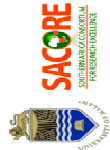|
|
|
Understanding the Potential Barriers and Facilitators for Enrolling Postdoctoral Fellows:
|
|
|
|
|
|
|
|
|
|

|
|
|
|
Wilson L. Mandala, Ph.D., Amelia C. Challender, Margaret Maimbolwa, Exnevia Gomo, Moffat Nyirenda, Frances M.Cowan, Susan C. Connors
|
|
|
|
Universities across Malawi, Zambia and Zimbabwe
|
|
Multiple universities across Malawi, Zambia, Zimbabwe, and the University of Colorado, Denver, USA.
|
|
wmandala2002@gmail.com
|
|
|
|
|
|
|
|
|
|

|
|
In many countries, aspiring researchers compete for post-doctoral fellowships after PhD studies. The Southern Africa Consortium of Research Excellence (SACORE) had aimed to enrol eight post-doctoral fellows in the first phase but only appointed one. This study was conducted to explore barriers and potential facilitators for enrolment of post-doctoral fellows at three African schools of medicine. Individual interviews were conducted with 32 stakeholders from College of Medicine, Malawi; University of Zambia, School of Medicine; and University of Zimbabwe, College of Health Sciences. Interviewees included: university leaders and faculty (n = 15), Ministry leaders (n = 5), eligible fellowship candidates (n = 11), and a post-doctoral fellow (n = 1). Interview guides were developed for each stakeholder group; interviews were recorded, transcribed verbatim and coded for key themes. Post-doctoral fellowships were identified as potentially beneficial financially and for academic career development. Institutions felt they could benefit by developing relevant research, increasing the pool of mentors, and future research leaders. Lack of suitably qualified applicants and economic constraints of academia were the main challenges to recruitment. Post-doctoral fellowships benefits for individuals, institutions and countries, and the need to improve the recruitment process as well as to define research career pathways, were isolated.
|
|
|
|
|
|
|
|

|
|